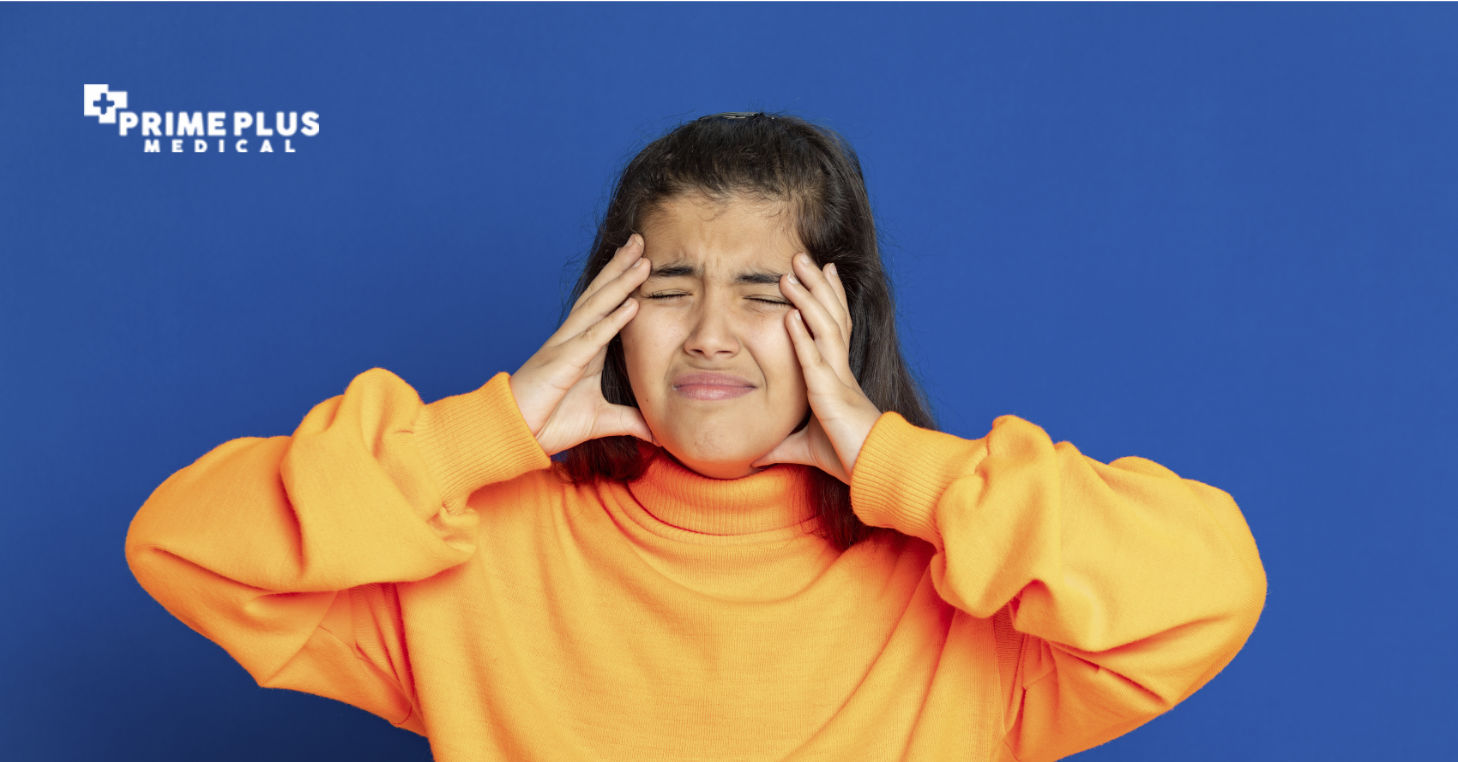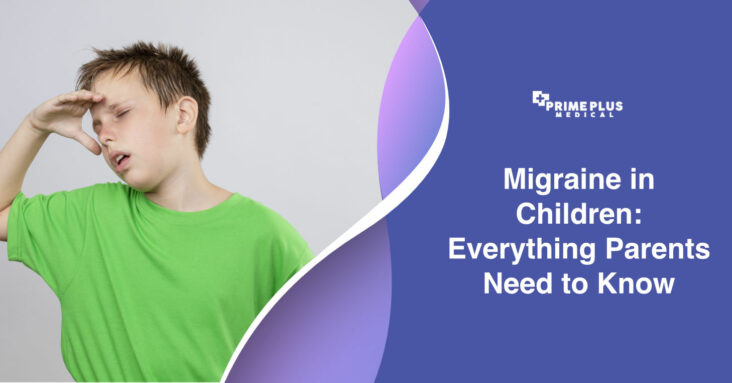Migraine in Children, migraines are often perceived as adult ailments. Contrary to popular belief, migraines can affect children as well. According to a journal published in the National Library of Medicine (USA), one in ten children and teens are affected by recurring migraines.
Therefore, parents should understand that migraines are more than an intense headache, especially since migraine in children are often worse than in adults.
By learning about migraines in children, their triggers, and how to avoid them, you can help your child prevent migraines. Here is what you need to know.

Understanding Migraine in Children
The Cleveland Clinic (USA) defines a migraine as a severe headache that causes throbbing, pulsing head pain on one side of your head. It is important to note that migraines are not merely bad headaches. A migraine is a neurological disorder.
According to the Cleveland Clinic, migraines in children typically manifest as bilateral headaches, affecting both sides of their head. Additionally, pediatric migraines are often shorter in duration than adult migraines but can still be very painful.
Recognizing the Symptoms of Migraine in Children
As parents, recognizing migraine symptoms in children is crucial for early intervention. Aside from the above symptoms of pediatric migraine that differ from migraines in adults, the National Migraine Centre (United Kingdom) also explained that symptoms of pediatric migraine include abdominal pain, vomiting, or both, which may recur even without a headache.
Triggers of Migraine in Children
Identifying triggers is essential for managing pediatric migraines. Research suggests various triggers, including dietary factors (e.g., chocolate, cheese, processed foods), dehydration, irregular sleep patterns, stress, hormonal changes, and environmental factors (e.g., strong odors, weather changes).
Each child may have unique triggers, making it important for parents to track and identify them through observation and with the guidance of a healthcare professional.
Diagnosis and Treatment
Diagnosing migraines in children involves a thorough medical evaluation. A healthcare provider will assess the child’s medical history, perform a physical examination, and may order tests to rule out other conditions.
Treatment strategies for pediatric migraines generally involve a combination of acute and preventive measures. Acute treatments include over-the-counter pain relievers like ibuprofen or acetaminophen. For severe or frequent migraines, prescription or preventive medications may be necessary.
Read similar article Mycoplasma Pneumoniae Impact on Children
Lifestyle Modifications to Manage Migraines in Children
In addition to medication, lifestyle modifications play a key role in managing pediatric migraines. Encourage your child to maintain a regular sleep schedule, stay hydrated, eat balanced meals, and engage in regular physical activity. Stress management techniques like relaxation exercises, mindfulness, and cognitive-behavioral therapy may also be beneficial.
How Migraines Affect Your Child’s School and Social Life
Migraines can significantly impact a child’s school performance and social activities. Collaborate with your child’s school to create a support plan outlining accommodations during migraine episodes. These accommodations may include allowing breaks, providing a quiet environment for rest, and flexibility with assignments and deadlines.
When to Seek Medical Attention for Pediatric Migraines
While migraines are typically not dangerous, certain symptoms warrant immediate medical attention. Seek urgent medical care if your child is below seven years old or if they experience severe headaches accompanied by fever, confusion, weakness, numbness, difficulty speaking, or visual disturbances.
Migraines can significantly impact your children’s quality of life, but implementing efficient prevention strategies can make a significant difference. For a proper diagnosis and treatment plan, make sure that you consult a healthcare professional. Our English-speaking team at Prime Plus Medical in Canggu is ready to assist you 24/7!

